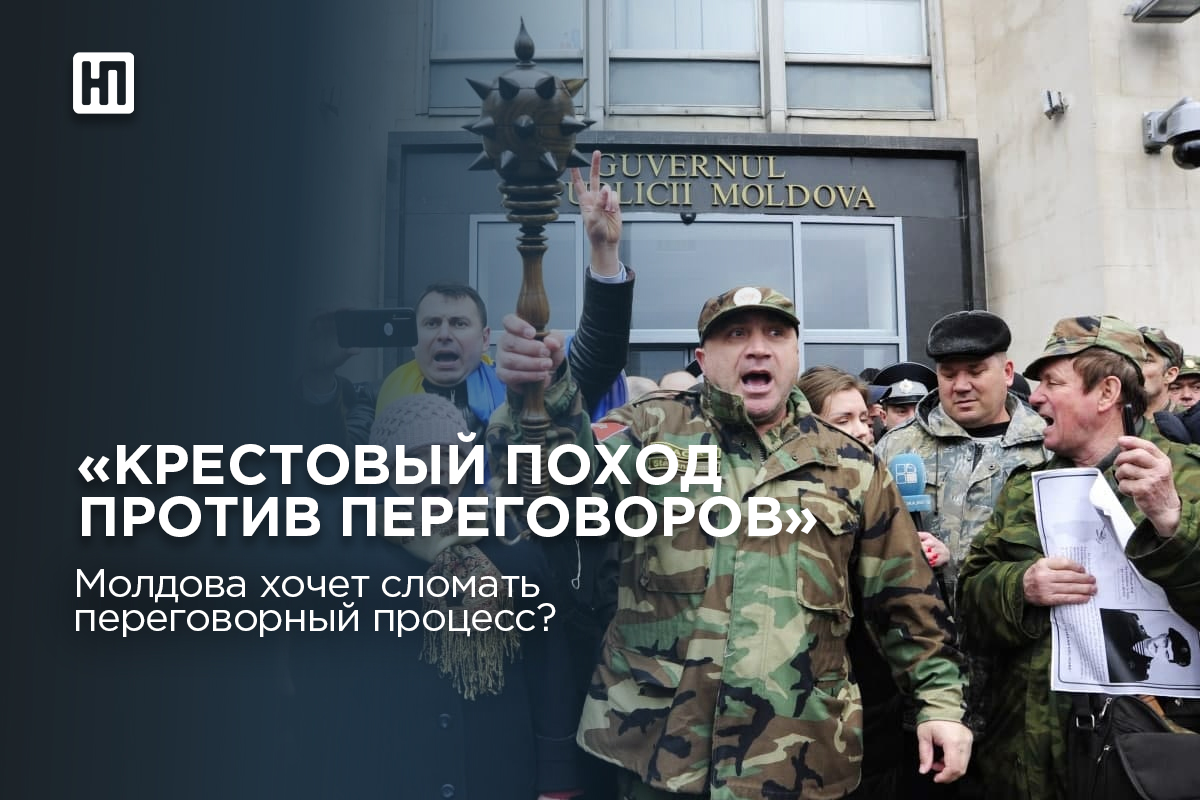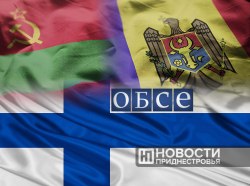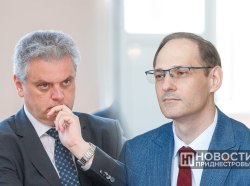Tiraspol, May 23. /Novosti Pridnestrovya/. In recent weeks, the Moldovan-Pridnestrovian negotiation process is increasingly facing such a problem as the politicization of socio-economic issues by Chisinau. The Moldovan authorities deliberately complicate those items on the negotiation agenda, which it is possible to find a technical solution for, introducing a political context into them. Various reasons are found in Chisinau for not solving anything, while these reasons are frankly far-fetched, and sometimes even absurd.
All this damages trust between the parties and, ultimately, the negotiating mechanisms themselves. As Russian Deputy Foreign Minister Andrey Rudenko stated last week, the negotiation process in the 5 + 2 format has already been deadlocked. Yet Chisinau only exacerbates the situation.
According to the Head of the Main Foreign Policy of the Ministry of Foreign Affairs of Pridnestrovie, Dmitry Palamarchuk, "today there is a kind of Moldovan authorities` crusade against the negotiation process." This can be seen in the ongoing stories of the detention of blanks of Pridnestrovian license plates, medicines, and agricultural chemistry. Nothing has been done since 2019 to lift the banking blockade of Pridnestrovie, which the National Bank of the Republic of Moldova itself started. And the Moldavian Metallurgical Plant has been having certain trouble with the import of raw materials since May 1 - the goods are coming, but only after Moldavian security forces` additional inspections, which slow down the delivery.
At the beginning of last week, certain joint inspection teams were created in Moldova, which include representatives of environmental services, the Border Police, the National Motor Transport Agency of the Republic of Moldova, and ordinary police inspectorates. They check all vehicles with shipment for MMP - even those that have entered from Romania and have already passed inspection at the Moldovan-Romanian border. For this, scrap metal can be held in Moldova for a day or more.
Will VRPs Work?
On May 3, as you know, the Moldovan court in Causeni made a decision, obliging the Moldovan police to return the blanks of Pridnestrovian license plates, which were detained back in December. In the court's view, there are no problems with the Pridnestrovian symbols on these blanks (this was the reason for the detention) in terms of Moldovan legislation. No crime has been committed here.
The representative of the Moldovan police, who did not come to the first two court sessions, remained silent on May 3, making it clear that he would agree with any court verdict. However, after this verdict turned out to be in favor of the Pridnestrovian State Unitary Enterprise Special Equipment and Supplies, the blanks were not returned to Tiraspol. Instead, the Moldovan police waited 15 days and then went and lodged an appeal almost on the last day, when it was possible to lodge it against the court decision. Now the case is likely to be held up for another few weeks, and maybe even months.
“The appeal was not lodged to prove one’s point, but solely for one reason - to delay the process of returning the blanks and, accordingly, to ensure that the vehicle registration points (VRPs) in Tiraspol and Rybnitsa do not operate. The Moldovan side does not seem to be interested in their work,” Dmitry Palamarchuk believes.
We recall that Pridnestrovian car owners who want to travel abroad can exchange their local license plates for neutral ones in the VRPs. But first, they must have local, Pridnestrovian, license plates. State Unitary Enterprise Special Equipment and Supplies imports blank for this purpose. The absence of these blanks blocks the entire process and the very operation of the VRPs.
Dmitry Palamarchuk draws attention to the fact that the Moldovan legislation, which allows vehicle registration points to operate, is extended every two years. And the next deadline for such an extension will come exactly on September 1 of this year.
“There is a feeling that the Moldovan police or someone who stands above them decided to wait until September 1 in the conditions of non-working VRPs. And if they do not work, then the idea may arise in Moldova that it is not necessary to continue the existing law. All this, of course, does not benefit the negotiation process,” the representative of the PMR Foreign Ministry states.
Medicines and Agricultural Chemistry - Unanswered Questions
Another example of the politicization of socio-economic issues is the situation with medicines and agricultural chemistry. One of these days, the Moldovan customs, it seems, should let the rest of the shipment of medicines from the Pridnestrovian Keyser LLC pass through. This will happen after several promises from Moldovan representatives, including Deputy Prime Minister Oleg Serebryan.
Of course, the question remains: why was it necessary to withhold these medicines for a month and a half, if it was recognized that it was still possible to let them through anyway? There is no answer to it.
There is still no sustainable solution for the entire set of medicines imported to Pridnestrovie. That is, hypothetically, there may be new cases with their detention.
As a result, Moldova did not even implement those proposals that its specialists themselves put forward at meetings of specialized expert groups on health care. The following was proposed: in addition to those medicines that are in the Moldovan registries, allow the PMR to import medicines from two Pridnestrovian lists containing about 700 items. We are talking about vital and socially significant medicines.
We will repeat: it was proposed by the Moldovan experts themselves. However, they were allegedly not supported by the Moldovan Government.
“This is not only about the fact that our pharmaceutical companies cannot supply the market and something is missing in the pharmacy. They cannot deliver to hospitals what the Ministry of Health needs. We are not able to do this not because we have no money, but because someone in Moldova decided that the medicines we buy are bad. At the same time, the Moldovan side itself recognizes the imperfection of its register of medicines,” Dmitry Palamarchuk said.
Approximately the same situation exists with fertilizers for Pridnestrovian agricultural producers. On March 30, a shipment from a Polish company with all European certificates arrived at Trading Group LLC. However, Moldova did not let it pass, referring to the fact that there is no such name in its register. As a result, on April 27, the fertilizers were returned to Poland.
With this state of affairs in Pridnestrovie, one may ask the question: how do Moldovan farmers who cultivate land in the Dubossary Region import fertilizers there? Do they receive appropriate permits from the Pridnestrovian Ministry of Agriculture based on the Pridnestrovian Register of Medicines and Fertilizers?
Banking Blockade as a Mirror of Negotiations
In mid-2019, the Moldovan National Bank circulated injunctions to all commercial banks of the Republic of Moldova, in which it indicated that it was necessary to limit any interaction with enterprises and even individuals from Pridnestrovie since supposedly even opening and maintaining current accounts is risky for them from the point of view of financing terrorism and laundering proceeds acquired by criminal conduct. After that, Pridnestrovian enterprises started having problems with servicing accounts and converting currency in Moldovan banks. And, although in February 2020 a seminar was held in Chisinau with the participation of international experts, including those in the field of combating money laundering, who assessed the operational activities of PMR enterprises as consistent with normal business practice, the banking blockade has not yet been eliminated. The relevant subgroups of Pridnestrovie and Moldova have not met since 2020 due to the reluctance of the National Bank representatives.
The banking blockade, by the way, also affects the fact that pharmaceutical companies from the PMR seek to purchase drugs mainly in Russia and Ukraine. They can transfer money for goods there, but usually not to Europe.
The situation in the banking sector is a mirror of the entire negotiation process between Pridnestrovie and Moldova to some extent. Problems in it did not begin on February 24 of this year. Chisinau has been systematically breaking this process from 2019-to 2020. In today's geopolitical conditions, it may have seemed to the Moldovan leadership at some point that the existing negotiation format is no longer needed. But that might be a very short-sighted approach.








